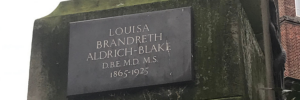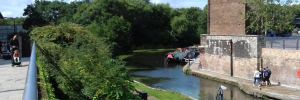Many of Dickens’ contemporary critics and reading public feared that novels could be too realistic, and that naïve readers (often female readers) wouldn’t be able to tell the difference between fiction and reality. Especially for a novel like Oliver Twist, which is about “dangerous” subjects like poverty, crime, and the relationship between the two.
“Please sir, I want some more”
London is repeatedly described as a labyrinth or a maze – once you get into it, it’s hard to get back out. The city itself serves as a kind of prison. It’s filthy, foggy, and crime-ridden, and things aren’t always what they seem. Oliver is on his own from the start. No one pities him, and even though he’s supposed to be looked after by the parish authorities, no one takes care of him.
Oliver Twist is sent from one scene of cruelty and oppression to the next, and finally plucks up the courage to stick up for himself (first by asking for more food, then by hitting Noah in the face, and finally by running away). So, by the end of this stage, Oliver is completely on his own in the big bad world.
The Artful Dodger invites Oliver Twist to come with him to a place where a gentleman will give him a place to sleep and food, for no rent. Oliver follows, and this is where our story begins…. Book your Oliver Twist guided walk tickets now
“The image of little Oliver Twist victimised by poverty, almost seduced by the specious excitement of crime, and then offered the possibility of a lucrative career in authorship is always compelling” Guardian



